- News
- Reviews
- Bikes
- Accessories
- Accessories - misc
- Computer mounts
- Bags
- Bar ends
- Bike bags & cases
- Bottle cages
- Bottles
- Cameras
- Car racks
- Child seats
- Computers
- Glasses
- GPS units
- Helmets
- Lights - front
- Lights - rear
- Lights - sets
- Locks
- Mirrors
- Mudguards
- Racks
- Pumps & CO2 inflators
- Puncture kits
- Reflectives
- Smart watches
- Stands and racks
- Trailers
- Clothing
- Components
- Bar tape & grips
- Bottom brackets
- Brake & gear cables
- Brake & STI levers
- Brake pads & spares
- Brakes
- Cassettes & freewheels
- Chains
- Chainsets & chainrings
- Derailleurs - front
- Derailleurs - rear
- Forks
- Gear levers & shifters
- Groupsets
- Handlebars & extensions
- Headsets
- Hubs
- Inner tubes
- Pedals
- Quick releases & skewers
- Saddles
- Seatposts
- Stems
- Wheels
- Tyres
- Health, fitness and nutrition
- Tools and workshop
- Miscellaneous
- Buyers Guides
- Features
- Forum
- Recommends
- Podcast
OPINION
Cycle touring isn’t dead: here’s why you should be embracing adventure on two wheels
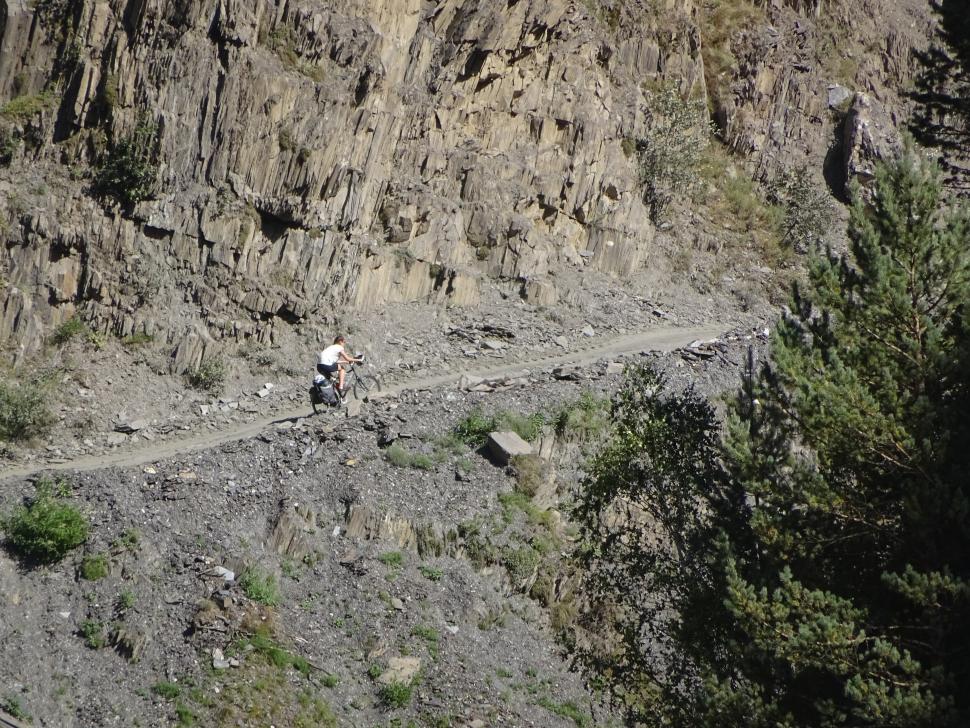 Why cycle touring isn't dead 7 Georgia on a Gumtree purchase
Why cycle touring isn't dead 7 Georgia on a Gumtree purchaseBikepacking is a cycling buzzword these days – like gravel and aerodynamics – with loads of brands jumping on board to sell you their latest kit, but isn’t bikepacking simply rebranded touring? As an avid tourer – someone who gets a real buzz from attaching luggage to a pannier rack and heading off on an adventure – I begin to ask myself: is there a difference? And isn’t the most important thing that we just get out there and enjoy the world on two wheels?
Media, the cycling industry and certain ambassadors might lead us to believe that bikepacking is a relatively new idea. However, it was a thing long before the likes of Apidura and Restrap started slim-lining luggage (in 2013 and 2010, respectively), calling it bike packing gear.
In 1972, a quartet undertook the Hemistour on heavily laden bikes and National Geographic covered it under the heading: “Bikepacking Across Alaska and Canada”.
Fill your boots with their tales and you might think your cycling adventures are a little tame by comparison. What made them call themselves bike packers rather than tourers? And did the British adopt bikepacking from the Americans? Arguably no – don’t forget the Rough-Stuff Fellowship which has been dedicated to riding mixed terrain since the 1950s, and people had been enjoying this type of cycling for a long time before that. Bikepacking is nothing new.
Maybe I’ve mused over the differences between cycle touring and bikepacking for far too long. I’ve contemplated if it’s the rack and traditional panniers that define me as a tourer. Due to my reluctance to strip back the gear, I carry the bare minimum. I’ve wondered if it’s the fact that my time spent on asphalt invariably outweighs my time off it. I’ve dared to question whether my choice of bike defines me as a tourer. It has crossed my mind that I’m more reliant on a paper map than a pre-set route. I usually ride without a GPS providing direction, without a fixed route or goal, and no mileage or time agenda. I really don’t recommend these internal debates. I’ve given up and gone out to ride my bike. I’ll give you my thoughts though…
What are you carrying and how?
I undertook my first ever multi-day adventure, a tour from Marrakesh across the Atlas mountains, in 2001. I didn’t take a tent, rather opting to rely on hostels and hotels (not everyone’s idea of a hotel might apply here) - risky business, some might say, in 2001’s Morocco.
Indeed, being a novice cycle adventurer, I didn’t actually own a tent. So, I was credit card touring? Well, no one was accepting credit cards as a means of payment in 2001 in the High Atlas, but for all intents and purposes, that's the way I was doing it; I had minimal clothes, basic tools, emergency first-aid kit, some personal hygiene products and an emergency bivvy bag (no sleeping bag). For sure, that would have fitted into a combination of today’s bike packing bags. It would have made handling and hike-a-bike easier as we ventured off the asphalt roads.
The bikepacking surge in the UK perhaps came too late for many of my early tours. For me, panniers have never failed to do the trick, and I’ve never had a rack fail on me. I continue to use them, even for credit card touring in spring and autumn (when extra warm, dry clothes are worth carrying).
I quickly developed a system: on-the-bike kit in one pannier, and off-the-bike kit in the other. Within each pannier, contents were separated out into different (colour or size-coded) stuff sacks so that I knew what to grab if I needed anything. With a bar bag out front for essentials, including a paper map (I didn’t own any kind of GPS unit for my first few years of touring), my set-up was complete. There was room in each pannier to add provisions and refilled water bladders. It was also easy to shuffle contents and keep heavy things at the bottom, ensuring a low centre of gravity.
Unsurprisingly, I got the cycle adventure bug. I soon became the owner of a tent (the MSR Hubba-Hubba), and all the sleeping gear that goes with it. I was gaining confidence and loving the freedom that a tent offered. I could stop anywhere; that meant both wild camping as well as established campsites.
Once you’ve made the jump to such adventures, the kit list expands significantly – cooking gear, sufficient provisions to last a few days if you leave civilisation, more personal hygiene products and, potentially, more tools. In warmer climes, I deemed swimming kit essential, though this tended to find it’s home strapped to the luggage rather than in it.
Only once have I used front panniers (in Iceland). Here I was prepared for four seasons in one day and a lack of shops. The front mounts helped spread the load, but I’d be reluctant to use them again unless I was doing more than six weeks on the road in remote places.
The growth of bikepacking has definitely given traditional tourers more choice where luggage is concerned. I love having a top tube bag in addition to my bar bag, offering extra to-hand capacity. However, those who’ve been doing it for years tend to have a kit list engraved in stone, packing systems that work for them and no desire to lighten the load or experiment with a different set-up that could affect handling.
Newcomers to cycle travel could find themselves unable to use a conventional set-up. A lack of sufficient eyelets can be problematic, not to mention more delicate frames and forks that are unable to take the load. Step-in companies like Restrap and Apidura to scoop up the swathes of modern tourers with modern bikes. Is there anywhere left on the bike where someone hasn’t tried attaching a bag? Just watch out for your paint job!
Certainly, the development of slimmed-down luggage options and lighter gear has eased the burden for hardcore adventurers. A tarp, bivvy and lightweight sleeping bag can be squeezed into a front roll or saddle bag, the remaining gear stuffed into a frame-pack and/or anywhere cages, offering a preferable set-up to panniers for rough riding.
On the other hand, those not willing to spend a night under the stars have the option of more size-appropriate luggage to carry essentials for a night or two in a comfy bed. The growth of Airbnb and Booking.com has contributed to the increase in lightweight, multi-day cycling trips.
What are you riding?
The explosion of gravel has fuelled the surge in bikepacking, and vice versa. Bikepackers might consider themselves a subsection of gravel – the bikes are perfect for a combination of on/off-road riding, with relaxed geometry for long days in the saddle. The number of traditional touring bikes on offer has been out-paced by gravel bikes. This isn’t a bad thing if you’re in the market for a tourer. You won’t be overwhelmed with choices, and available options have likely endured a survival-of-the-fittest evolution.
It’s not all about the bike though. Whilst I dream of investing in something that is more traditional in terms of touring (Dear Santa, please can I have a Genesis Croix De Fer 20), I’ve relished the challenge of adapting what I have.
With frames having fewer eyelets for guards and racks, it would be easy to think direct mount luggage is the only way. It isn’t. The Ortlieb Quick Rack is a great bit of kit that I’ve been using for several years now.
Prior to this, I’ve made use of a seat post clamp with rack mounts. I’ve even had a professional welder (thankfully a friend) put mounts on a Gumtree-sourced Raleigh M-Trax that toured both Iceland and Georgia (£60 well spent).
Admittedly, given the terrain I was riding on in countries like Slovenia and Iceland, my choice of bike, wheels and tyres would be different if I were going now. Indeed, it would likely be a gravel bike. The ride would be vastly comfier. However, my memories of the people I met, the places I saw, the tracks I rode and the freedom I experienced far outshine those of the bike I was riding.
Where are you riding?
While I’m not the most skilled of off-road riders, the sense of escape and freedom and the connection with nature that off-road brings is just too tempting to turn my nose up at.
In Morocco, the clay-like mud clogged up the brake callipers; stopping to poke the moulded clumps out became a regular ritual. In Slovenia and Iceland, I found myself pushing the bike over the most technical sections. I was never in a rush and it was a welcome change from pedalling the bike. Admittedly, a different setup might have made handling the bike on some off-road sections easier, but it wasn’t going to change the actual terrain.
What’s your plan?
For me, poring over a paper map prior to going touring is unbeatable. Researching potential detours to take in worthwhile sights, finding family-run campsites, locating lakes, castles, climbs, quiet lanes and tracks... this is all part of the adventure experience.
Spending time reading about a place, gaining knowledge, marking a map with points of interest and potential routes means there’s a plan, but the route is not set in stone. My best tours have always been planned loosely, permitting changes and having zero time pressures or distance goals. A day off here and there never fails to create happy tour memories. I’ve booked into campsites for two nights and enjoyed hikes, rafting expeditions and paragliding. Seeing more than just the road and trail that I’m following has always been a priority for me.
For those who are time-poor or lack the inclination to pour over a map, platforms and websites such as Komoot and Strava permit rapid route acquisition and upload. There really are no barriers for those with a map-reading phobia. Literature such as Jack Thurston’s Lost Lanes series provides outstanding inspiration for anyone with a desire to start exploring on two wheels while simultaneously learning about their surrounds.
My musings near an end. I conclude that it’s not the bags, bike or choice of route that define a cycle adventurer. The lack of a goal and specific time schedule (which is intrinsically linked to the lack of desire to carry the bare minimum) may differentiate tourers and bike packers.
Every aspect of cycle adventure, from planning to equipment, has advanced sufficiently to meet a vast range of needs and wants. It’s truly more accessible than ever. I’d advise getting some luggage on your bike, getting yourself out of the door and revelling in the adventure. What you call it really doesn’t matter.
Emma’s first encounters with a road bike were in between swimming and running. Soon after competing for GB in the World Age Group Triathlon Championships in Edmonton in 2001 she saw the light and decided to focus on cycling.
After a couple of half decent UK road seasons racing for Leisure Lakes, she went out to Belgium to sample the racing there and spent two years with Lotto-Belisol Ladies team, racing alongside the likes of Sara Carrigan, Grace Verbeke, Rochelle Gilmore and Lizzie Deignan. Emma moved from Lotto-Belisol to Dutch team Redsun, then a new Belgian team of primarily developing riders, where there was less pressure, an opportunity to share her experience and help build a whole new team; a nice way to spend her final years of professional racing.
Since retiring Emma has returned to teaching. When not coercing kids to do maths, she is invariably out on two wheels. In addition to the daily commute, Emma still enjoys getting out on her road bike and having her legs ripped off on the local club rides and chain gangs. She has also developed an addiction to touring, with destinations including Iceland, Georgia and Albania, to mention just a few. There have also been rare sightings of Emma off-road on a mountain bike…
More Opinion
Latest Comments
- ktache 0 sec ago
I have been using microfibre cloths to clean my chain, Silca's Synergetic, (after the old t-shirt wipe) originally the pricey ones from Waitrose. ...
- Ianbb 6 min 52 sec ago
Good luck Dave. May well see you there. Hopefully the weather will be like it is this week!
- ktache 8 min 32 sec ago
Well done for Reading cyclists for being so welcoming.
- Miller 21 min 11 sec ago
Well exactly. Anything they say now is hot air. They'll all be washed away at the general election and not a moment too soon.
- ymm 28 min 45 sec ago
Looking forward to seeing the frothing right wingers wading into this, along with Mark Harper of DfT fame with a suitably unhinged viewpoint...
- Homebaker 49 min 23 sec ago
I'm concerned there's a serious risk that the government will put some anti-cycling piece on the agenda to court votes and it will then get picked...
- HLaB 1 hour 4 min ago
Will this get prosecuted do the same degree of dangerous driving, pleas of extreme hardship accepted and pro rata to the actual unfortunate events...
- Hirsute 1 hour 50 min ago
Sir Liam fox. Please show due deference to our betters.
- alan_peery 2 hours 2 min ago
If you're searching for a different experience, one where the visuals on-screen come from Google Street view, check out drumuri.bike. Runs within a...
- FionaJJ 4 hours 1 min ago
I'm not confortable with the 'evil' description either. I'm also prepared to accept a custodial sentence may not have been appropriate. However, it...
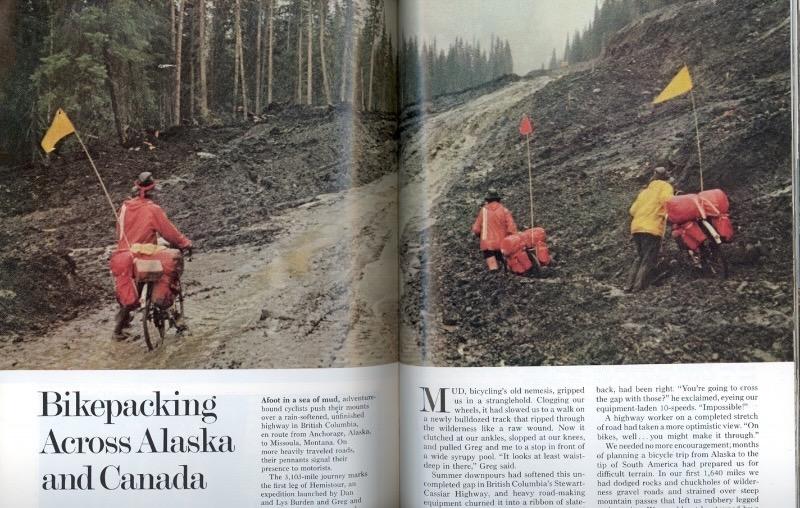
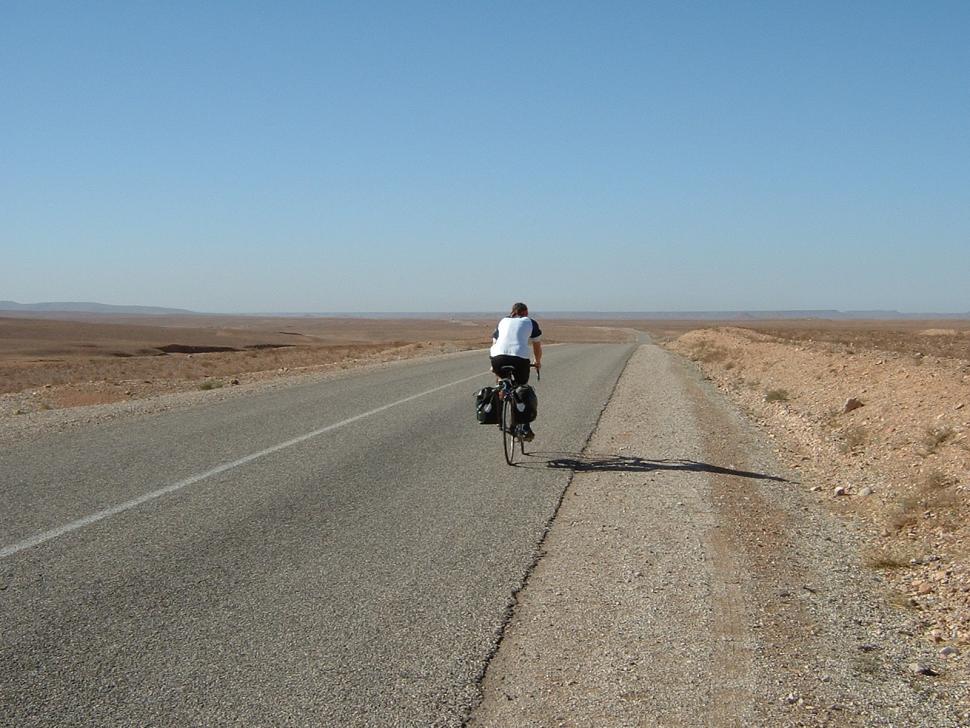
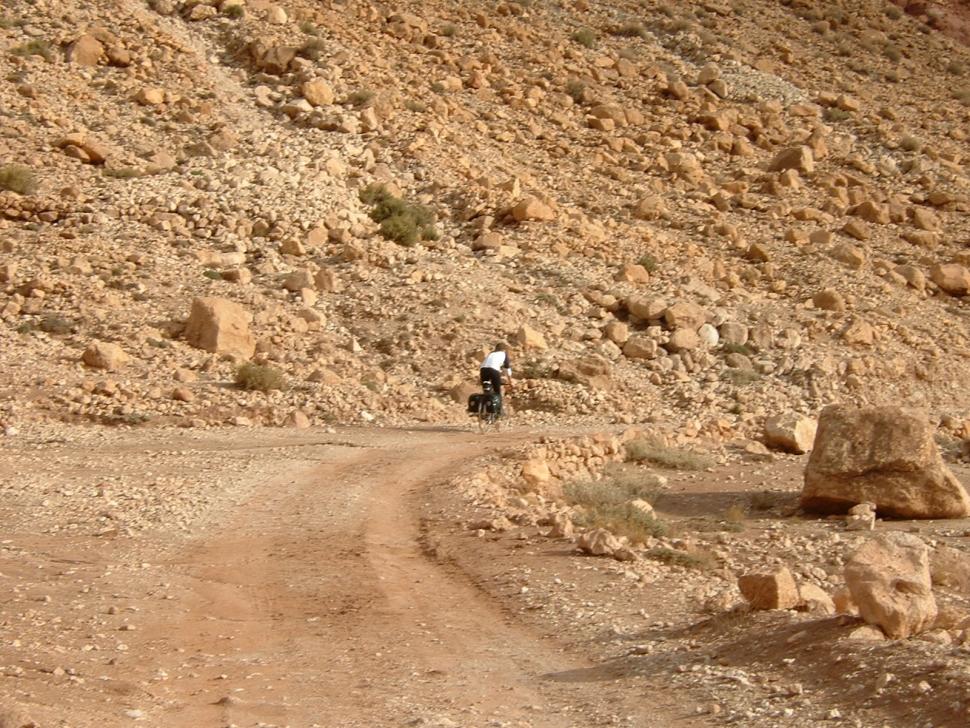
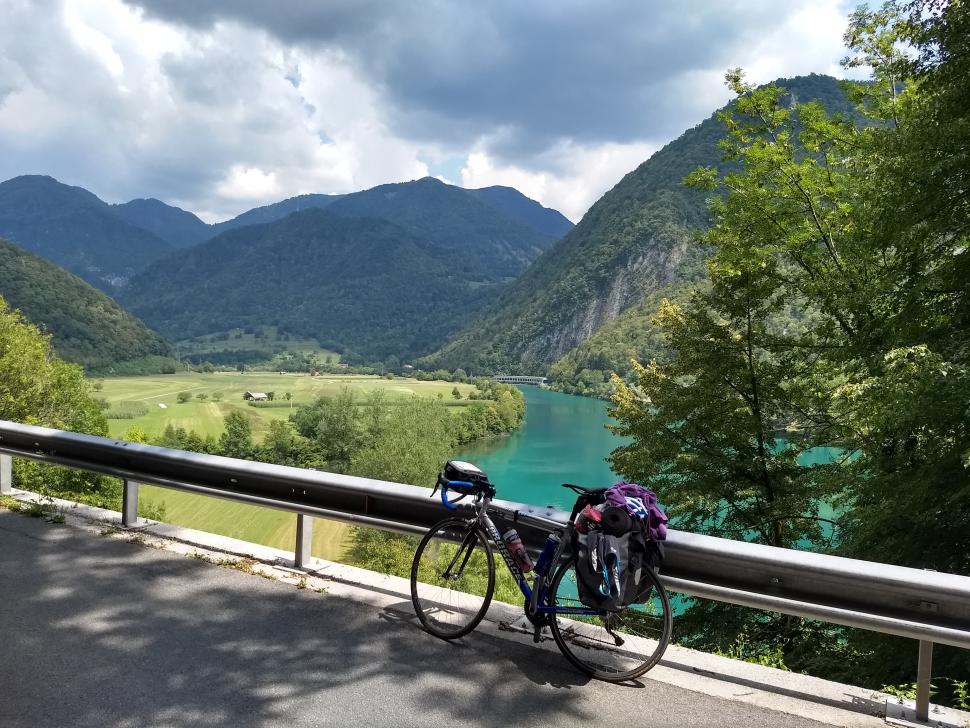
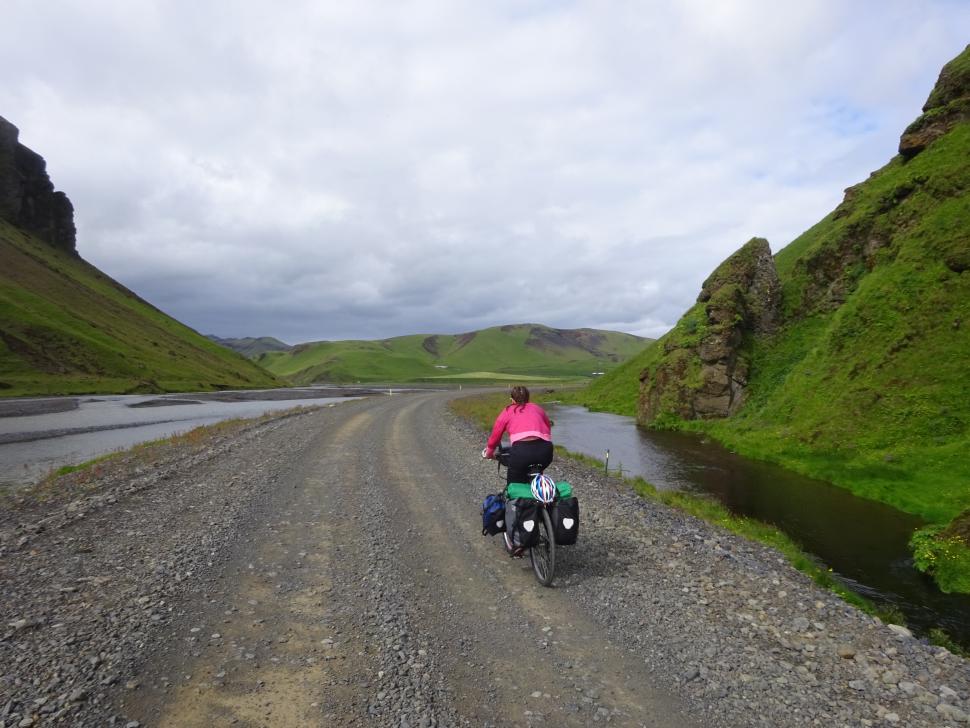
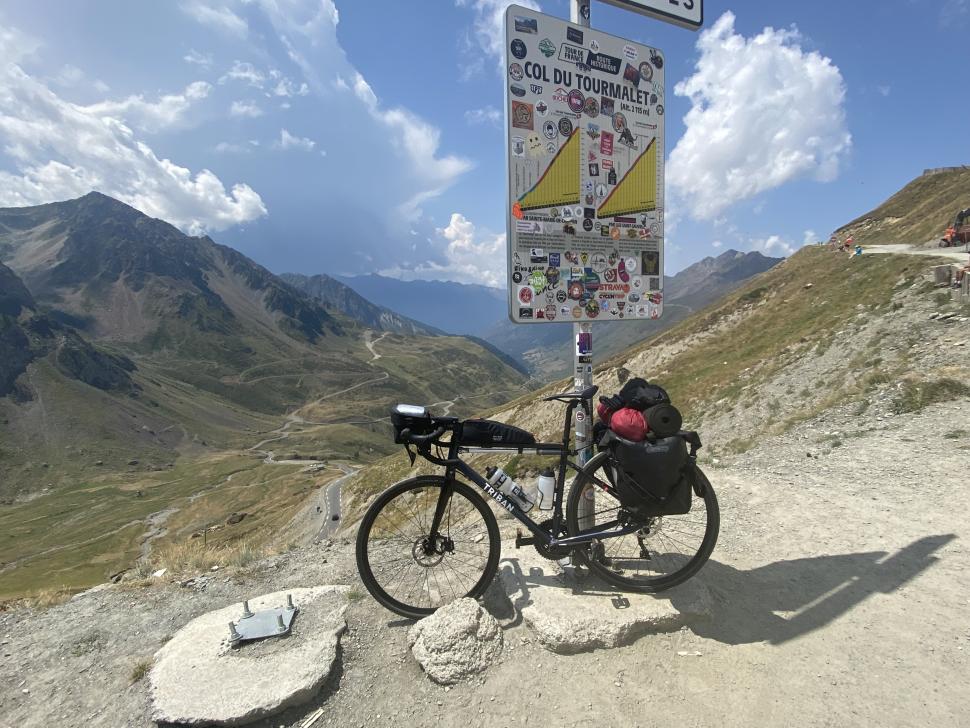
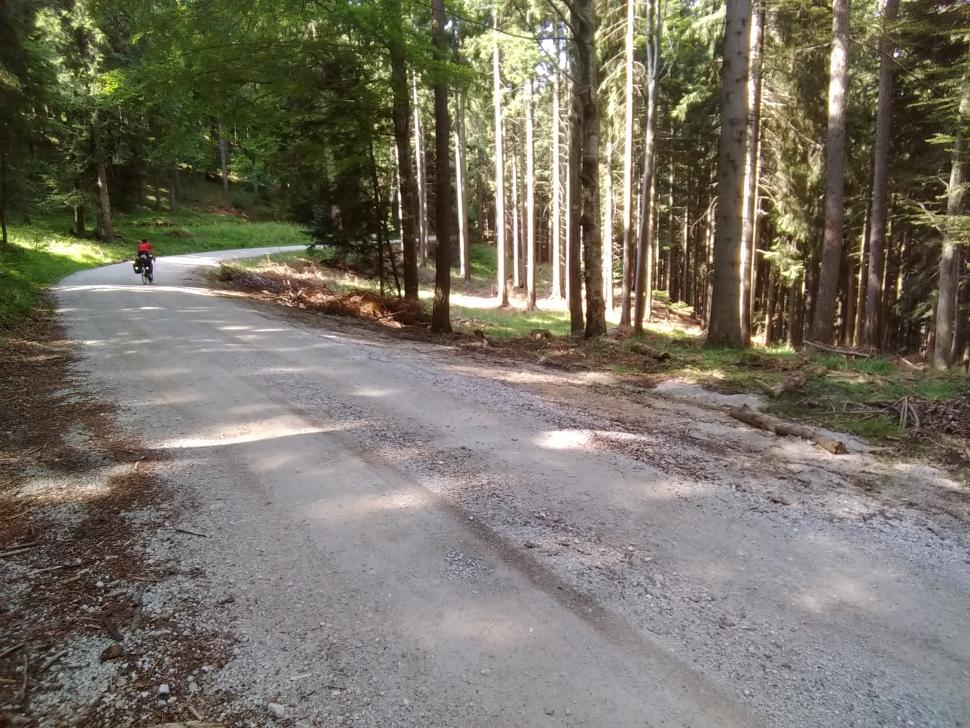
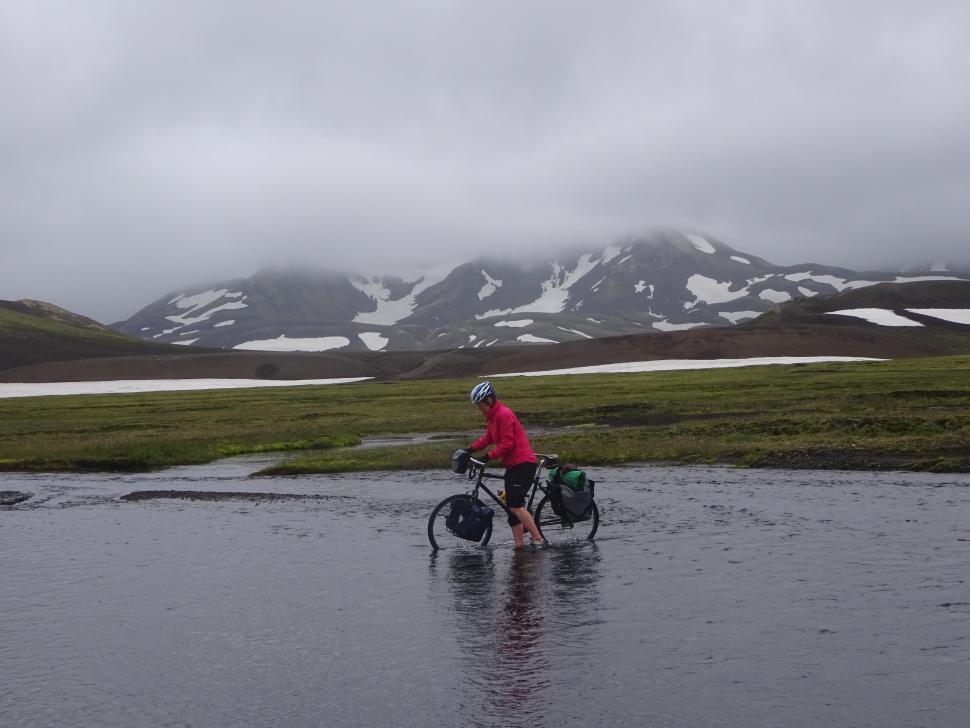
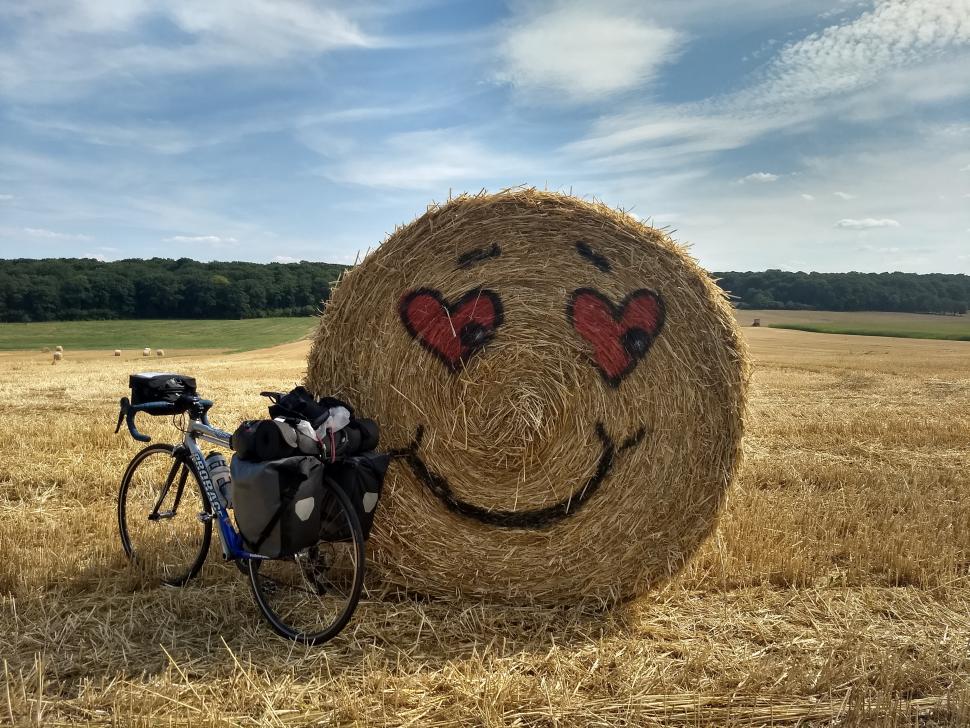
Add new comment
9 comments
bikepack mode
As a fan of panniers and bikepacking I will defend both quiet happily. For me if you are willing to go credit card bikepacking on a fast roadbike with absolute minimum of stuff as there is no arodynamic penalty with a top tube bag and saddlepack and maybe 7kg of wieght max.
Historically speaking, bikepacking is a step backwards, before the 1930s luggage had to be strapped to the frame, and racks were a big progress.
Outside of a few pretty extreme forms of mountain bike touring very little pleads for bike packing setups:
- Small carrying capacity and poor capacity/weight ratio
- Poor capacity/price ratio
- Places centre of gravity very high on the bike, swaying of bags (especially saddle bags) affects handling
- Poor versatility of bags, you practically have to taylor them to one bike...
Touring never died rather both bicycle manufactures and the cycling media rather lost interest in it.
Yeah; read Tom Allen's blog for his thoughts on the difference between Touring & Bikepacking......
Tom Allen? Please tell me you don't mean the comedian.
I presume they mean this one: https://tomsbiketrip.com
I suspect that they meant this Tom Allen:
https://tomsbiketrip.com/
and not this one:
I'm now reading the former in the latter's voice